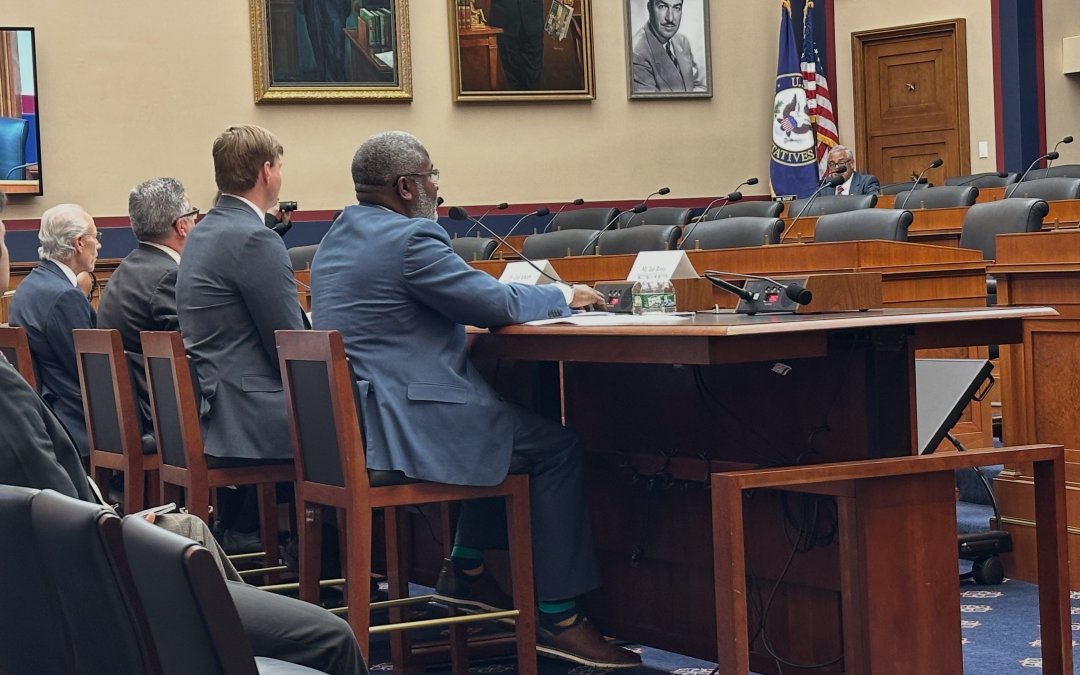WASHINGTON — Democrats and Republicans disagreed on the pressing issues facing U.S. education during a hotly debated hearing on Wednesday held by the House Subcommittee on Early Childhood, Elementary, and Secondary Education. Republicans took aim at the alleged teaching of “critical race theory” in schools, while Democrats emphasized the need to rebuild America’s school infrastructure.
Republicans invited Ian Rowe, a senior fellow at the American Enterprise Institute, a DC-based conservative think tank, to speak about the need for an “America-centered” curriculum.
He argued that America is plagued by “discredited and wrong” history such as the 1619 Project, a curriculum supported by the Pulitzer Center that was developed from reporting in the New York Times in 2019 about slavery and the founding of the United States. He noted that thousands of teachers instead chose to teach resources provided by the American Enterprise Institute.
Rowe, who touted his involvement with multiple local schools, told the committee that students at his schools recite the preamble to the Constitution of the United States every day along with the pledge of allegiance.
Committee chair Rep. Aaron Bean, R-Fla., applauded this sentiment enthusiastically. He introduced each member of the “all-star panel” with an opening statement lambasting the state of American education, saying it teaches “race-inspired ideology.”
Democrats, on the other hand, invited Brian Kennedy, a representative from the International Union of Bricklayers and Allied Craftworkers, to testify about the state of American school buildings.
The ranking member, Democrat Suzanne Bonamici, D-Ore., made clear the federal government has no role in local curriculum, and said the committee should focus on what is under its purview.
“We [should not be spending] time interfering with state and local decision-making,” she said. “We should talk about issues that Congress does have the power to influence.”
Kennedy spoke about faltering facilities at American public schools. He said the average age of a school building in the U.S. is 47 years—making it possible for children, parents, and grandparents to have all attended the same school building.
He stressed the need for federal funding to rebuild, telling the representatives that local boards of education do not have the money to act alone. He added that “investment in infrastructure creates growth, and pays for itself in that way.”
Rep. Jahana Hayes, D-Conn., who herself was a teacher and received her degree in education from Southern Connecticut State University and the University of St. Joseph said there is “no teaching of critical race theory in secondary schools.”
“This is a theory in law school, not anywhere else…so I don’t know why we’re all here,” she said. “The way we teach is decided at the local level, not in Congress, not here.”
Rep. Glenn Thompson, R-Penn., seemed to bridge the gap between the two parties. He opened his questions with a plea to Congress to fully meet its educational obligations, before transitioning to the importance of civics education.
“Congress is just not footing the bill,” he said. “We don’t need more bureaucracy—we need to do our jobs.”
Michael Weiser, the chair of the Jack Miller Center, a Philadelphia-based educational nonprofit, said the “cruelest form of inequity is the lack of curiosity in education, that should be the focus.”
Rep. Tim Walberg, R-Mich., agreed that “education is not listed anywhere in the constitution…the federal government should not be involved in what we are teaching in schools.” He went on to contradict this point a few moments later by adding, “this critical race theory should not be allowed in schools.”
Jessica Ellison, director of the National Council for History Education, highlighted the need for history education in a statement writing, “[students must] have a space to grapple with history’s complicated nature.” She added, “the actions of humans are challenging, painful, progressive, and resilient…history education is as critical for a student’s growth as English or math.”

